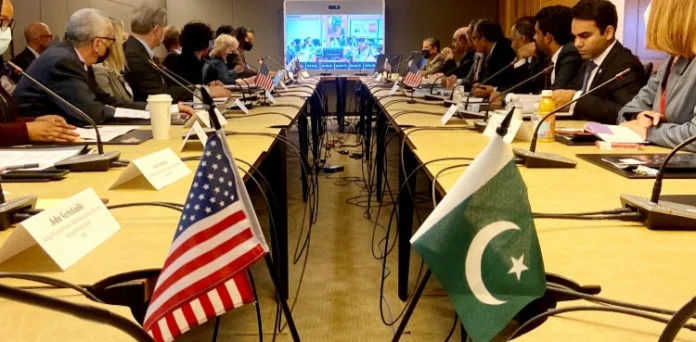Lahore, April 14: Pakistan is actively considering a strategic proposal to import 10% of its crude oil and petrol from the United States.
This initiative aims to mitigate the impact of recent U.S. tariffs and address trade imbalances. According the Ministry of Energy, it also seeks to support the country’s exports, which have recently reached $6 billion.
Background on U.S. Tariffs
The move comes in response to the U.S. imposing a 29% tariff on Pakistani exports on top of a 10% baseline tariff.
However, the Trump administration has suspended these tariffs for 90 days, providing a window for negotiations. During this period, the Pakistani government is consulting with stakeholders, including refineries and oil marketing companies (OMCs). It might also finalise the proposal to import 10% of crude oil and petrol from the U.S.
Read more: Tariffs: Pakistan Rules Out Retaliation, Says Finance Minister
This proposal is expected to be tabled for approval by the Economic Coordination Committee (ECC) soon.
The trade deficit between Pakistan and the U.S. stands at $3 billion, prompting the U.S. to impose tariffs across 180 countries.
To mitigate the impact, approximately 75 countries have agreed to negotiate with the U.S. to reduce the deficit and avoid these tariffs, which will take effect after the 90-day period.
What do Officials Say?
Officials have explained that while importing crude oil and petrol from the U.S. would incur an additional $3 per barrel cost due to transportation, the impact on consumers would be minimal.
Read more: Trump Tariffs Pose $1.4 Bln Threat to Pakistan Exports
This increase would be absorbed by the government, and when distributed across the entire consumer base, it would amount to just 0.50 per liter.
Making the Best of the Worst Situation
In return, Pakistan plans to negotiate the removal of the 29% tariffs imposed by the U.S. The government is also considering further imports from the U.S., such as sophisticated machinery, soybean, steel, and iron, as part of a broader effort to strengthen trade ties.
Pakistan’s government delegation plans to assure the U.S. of compliance with intellectual property rights (IPRs). It also plans to address concerns that have caused substantial losses for U.S. companies.
Additionally, Pakistan aims to reduce non-tariff barriers, including customs and sanitary regulations, to facilitate smoother trade relations with the U.S.
This strategic move is seen as a step towards balancing trade relations and mitigating the adverse effects of the imposed tariffs. It should also explore avenues to strengthen economic ties between Pakistan and the United States.









